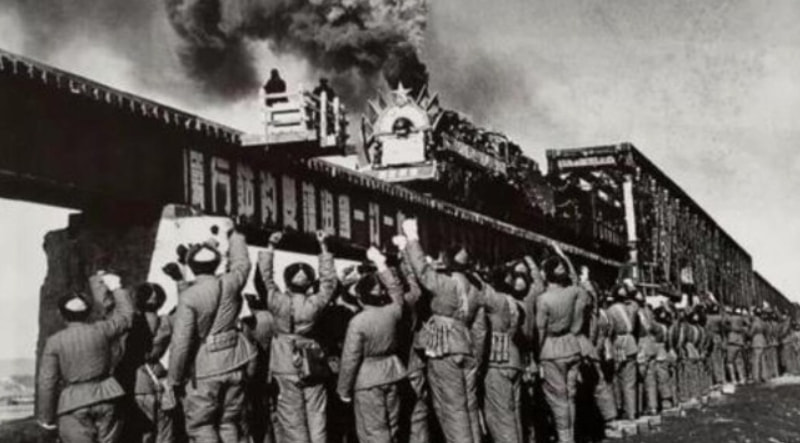The commander of the United Nations army, Li Qiwei, said triumphantly: Our aim is to fight the enemy with fire and iron as much as possible. We must make full use of our superiority in air power and artillery fire to completely destroy our enemies.
The superiority of the United Nations army in firepower was indeed great, and in the Gaotai Mountain blockade recorded in the "Diary of the War to Resist US Aggression and Aid Korea", the 563rd Regiment often had an example of a squad leader who became a deputy company commander after hitting noon. The enemy's artillery fire was so fierce that the backbone was basically dead, and the position was full of the bloody smell of the blood mixed with the flesh and blood of the soldiers and the enemy.
It was June 3, 1951, when the 188th Division led by Zhang Yinghui was blocking the enemy near Gaotai Mountain and Jinhe Mountain. Faced with the enemy's superiority in artillery fire, Zhang Yinghui thought of the tunnel warfare that had been widely practiced in the anti-Japanese base areas behind the enemy's lines.
There was really no way, the 189th Division, which was previously in charge of defense, suffered too high casualties, and the enemy was already approaching The Iron Plains City, resulting in the 188th Division not having enough defense depth after taking over the defense. Fortunately, Zhang Yinghui is a typical tunnel warfare expert. The tunnels he dug did become a nightmare for U.S. armored forces.
The 563rd Regiment of the 188th Division was the first to arrive at Gaotai Mountain. However, this regiment did not receive any supplies before, and many of the equipment was obtained by picking up the UN troops. No sooner had they reached the Gaotaishan position than they encountered the U.S. First Cavalry Division, ushering in their most dangerous moment.
On June 4, 1951, the United Nations launched a fierce attack on the Gaotaishan position, and under the cover of dozens of tanks, they launched a ferocious attack in battalion companies. The eight companies at the front of the position were bombarded with a large amount of artillery fire, and under the leadership of Guo Enzhi, the commander of the eighth company, they cleverly avoided artillery fire and enemy melee battles, and tried to save ammunition.
There is really no way around this. Before entering the position, the eight companies had a total of less than 50 men, and they were guarding several hills of less than 300 meters, facing the First Division of American Cavalry. But even so, they actually repelled the enemy's attack 13 times at the cost of 16 casualties, eliminated more than 800 people, and created a battlefield miracle.
After the end of the blockade battle, the eighth company won the collective first class merit once. Company commander Guo Enzhi also received special merit and became a first-class combat hero.
The "Battlefield Diary of the War to Resist US Aggression and Aid Korea" records that the casualties of the 563rd Regiment were too great, and the fighting was the most tragic. The 207 heights of the first and second platoons were attacked by the enemy on three sides, and only eight people remained in the entire second platoon, and the ammunition was exhausted, and the American troops continued to rush upwards. They resolutely jumped off the cliff, three of them were lucky to survive, and five of them died heroically.
When the battalion commander told the regimental commander Ma Zhaoming of the cliff-jumping feats of a company of two platoons, Ma Zhaoming cried. He looked at the position of the Second Company and could not speak for a long time, this was the living "Five Heroes of Wolf Tooth Mountain".
This fierce battle was recorded in the "Battlefield Diary of the War to Resist US Aggression and Aid Korea" written by war correspondent Xi Hong, and he was recommended by Liu Zongzhuo, former director of the People's Liberation Army Newspaper, which is the most comprehensive and complete record of the life of the first-line field volunteers in the history of the war, and has extremely high historical value.
The book contains more than 100 precious pictures, and he talks about the author's entry into Korea until his departure from North Korea, telling the author's story of what he saw and heard in the Korean battlefield. Let's understand this new China's founding battle from the first perspective, click on the link below to buy.
【Zhengguan】 The War Diary of the War to Resist US Aggression and Aid Korea (Part 1 and 2) is two volumes
